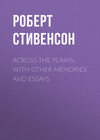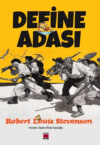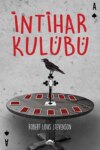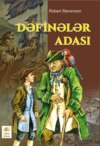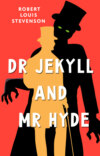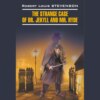Kitabı oku: «Across the Plains, with Other Memories and Essays», sayfa 11
X
LETTER TO A YOUNG GENTLEMAN WHO PROPOSES TO EMBRACE THE CAREER OF ART
With the agreeable frankness of youth, you address me on a point of some practical importance to yourself and (it is even conceivable) of some gravity to the world: Should you or should you not become an artist? It is one which you must decide entirely for yourself; all that I can do is to bring under your notice some of the materials of that decision; and I will begin, as I shall probably conclude also, by assuring you that all depends on the vocation.
To know what you like is the beginning of wisdom and of old age. Youth is wholly experimental. The essence and charm of that unquiet and delightful epoch is ignorance of self as well as ignorance of life. These two unknowns the young man brings together again and again, now in the airiest touch, now with a bitter hug; now with exquisite pleasure, now with cutting pain; but never with indifference, to which he is a total stranger, and never with that near kinsman of indifference, contentment. If he be a youth of dainty senses or a brain easily heated, the interest of this series of experiments grows upon him out of all proportion to the pleasure he receives. It is not beauty that he loves, nor pleasure that he seeks, though he may think so; his design and his sufficient reward is to verify his own existence and taste the variety of human fate. To him, before the razor-edge of curiosity is dulled, all that is not actual living and the hot chase of experience wears a face of a disgusting dryness difficult to recall in later days; or if there be any exception – and here destiny steps in – it is in those moments when, wearied or surfeited of the primary activity of the senses, he calls up before memory the image of transacted pains and pleasures. Thus it is that such an one shies from all cut-and-dry professions, and inclines insensibly toward that career of art which consists only in the tasting and recording of experience.
This, which is not so much a vocation for art as an impatience of all other honest trades, frequently exists alone; and so existing, it will pass gently away in the course of years. Emphatically, it is not to be regarded; it is not a vocation, but a temptation; and when your father the other day so fiercely and (in my view) so properly discouraged your ambition, he was recalling not improbably some similar passage in his own experience. For the temptation is perhaps nearly as common as the vocation is rare. But again we have vocations which are imperfect; we have men whose minds are bound up, not so much in any art, as in the general ars artium and common base of all creative work; who will now dip into painting, and now study counterpoint, and anon will be inditing a sonnet: all these with equal interest, all often with genuine knowledge. And of this temper, when it stands alone, I find it difficult to speak; but I should counsel such an one to take to letters, for in literature (which drags with so wide a net) all his information may be found some day useful, and if he should go on as he has begun, and turn at last into the critic, he will have learned to use the necessary tools. Lastly we come to those vocations which are at once decisive and precise; to the men who are born with the love of pigments, the passion of drawing, the gift of music, or the impulse to create with words, just as other and perhaps the same men are born with the love of hunting, or the sea, or horses, or the turning-lathe. These are predestined; if a man love the labour of any trade, apart from any question of success or fame, the gods have called him. He may have the general vocation too: he may have a taste for all the arts, and I think he often has; but the mark of his calling is this laborious partiality for one, this inextinguishable zest in its technical successes, and (perhaps above all) a certain candour of mind to take his very trifling enterprise with a gravity that would befit the cares of empire, and to think the smallest improvement worth accomplishing at any expense of time and industry. The book, the statue, the sonata, must be gone upon with the unreasoning good faith and the unflagging spirit of children at their play. Is it worth doing? – when it shall have occurred to any artist to ask himself that question, it is implicitly answered in the negative. It does not occur to the child as he plays at being a pirate on the dining-room sofa, nor to the hunter as he pursues his quarry; and the candour of the one and the ardour of the other should be united in the bosom of the artist.
If you recognise in yourself some such decisive taste, there is no room for hesitation: follow your bent. And observe (lest I should too much discourage you) that the disposition does not usually burn so brightly at the first, or rather not so constantly. Habit and practice sharpen gifts; the necessity of toil grows less disgusting, grows even welcome, in the course of years; a small taste (if it be only genuine) waxes with indulgence into an exclusive passion. Enough, just now, if you can look back over a fair interval, and see that your chosen art has a little more than held its own among the thronging interests of youth. Time will do the rest, if devotion help it; and soon your every thought will be engrossed in that beloved occupation.
But even with devotion, you may remind me, even with unfaltering and delighted industry, many thousand artists spend their lives, if the result be regarded, utterly in vain: a thousand artists, and never one work of art. But the vast mass of mankind are incapable of doing anything reasonably well, art among the rest. The worthless artist would not improbably have been a quite incompetent baker. And the artist, even if he does not amuse the public, amuses himself; so that there will always be one man the happier for his vigils. This is the practical side of art: its inexpugnable fortress for the true practitioner. The direct returns – the wages of the trade are small, but the indirect – the wages of the life – are incalculably great. No other business offers a man his daily bread upon such joyful terms. The soldier and the explorer have moments of a worthier excitement, but they are purchased by cruel hardships and periods of tedium that beggar language. In the life of the artist there need be no hour without its pleasure. I take the author, with whose career I am best acquainted; and it is true he works in a rebellious material, and that the act of writing is cramped and trying both to the eyes and the temper; but remark him in his study, when matter crowds upon him and words are not wanting – in what a continual series of small successes time flows by; with what a sense of power as of one moving mountains, he marshals his petty characters; with what pleasures, both of the ear and eye, he sees his airy structure growing on the page; and how he labours in a craft to which the whole material of his life is tributary, and which opens a door to all his tastes, his loves, his hatreds, and his convictions, so that what he writes is only what he longed to utter. He may have enjoyed many things in this big, tragic playground of the world; but what shall he have enjoyed more fully than a morning of successful work? Suppose it ill paid: the wonder is it should be paid at all. Other men pay, and pay dearly, for pleasures less desirable.
Nor will the practice of art afford you pleasure only; it affords besides an admirable training. For the artist works entirely upon honour. The public knows little or nothing of those merits in the quest of which you are condemned to spend the bulk of your endeavours. Merits of design, the merit of first-hand energy, the merit of a certain cheap accomplishment which a man of the artistic temper easily acquires – these they can recognise, and these they value. But to those more exquisite refinements of proficiency and finish, which the artist so ardently desires and so keenly feels, for which (in the vigorous words of Balzac) he must toil “like a miner buried in a landslip,” for which, day after day, he recasts and revises and rejects – the gross mass of the public must be ever blind. To those lost pains, suppose you attain the highest pitch of merit, posterity may possibly do justice; suppose, as is so probable, you fall by even a hair’s breadth of the highest, rest certain they shall never be observed. Under the shadow of this cold thought, alone in his studio, the artist must preserve from day to day his constancy to the ideal. It is this which makes his life noble; it is by this that the practice of his craft strengthens and matures his character; it is for this that even the serious countenance of the great emperor was turned approvingly (if only for a moment) on the followers of Apollo, and that sternly gentle voice bade the artist cherish his art.
And here there fall two warnings to be made. First, if you are to continue to be a law to yourself, you must beware of the first signs of laziness. This idealism in honesty can only be supported by perpetual effort; the standard is easily lowered, the artist who says “It will do,” is on the downward path; three or four pot-boilers are enough at times (above all at wrong times) to falsify a talent, and by the practice of journalism a man runs the risk of becoming wedded to cheap finish. This is the danger on the one side; there is not less upon the other. The consciousness of how much the artist is (and must be) a law to himself, debauches the small heads. Perceiving recondite merits very hard to attain, making or swallowing artistic formulæ, or perhaps falling in love with some particular proficiency of his own, many artists forget the end of all art: to please. It is doubtless tempting to exclaim against the ignorant bourgeois; yet it should not be forgotten, it is he who is to pay us, and that (surely on the face of it) for services that he shall desire to have performed. Here also, if properly considered, there is a question of transcendental honesty. To give the public what they do not want, and yet expect to be supported: we have there a strange pretension, and yet not uncommon, above all with painters. The first duty in this world is for a man to pay his way; when that is quite accomplished, he may plunge into what eccentricity he likes; but emphatically not till then. Till then, he must pay assiduous court to the bourgeois who carries the purse. And if in the course of these capitulations he shall falsify his talent, it can never have been a strong one, and he will have preserved a better thing than talent – character. Or if he be of a mind so independent that he cannot stoop to this necessity, one course is yet open: he can desist from art, and follow some more manly way of life.
I speak of a more manly way of life, it is a point on which I must be frank. To live by a pleasure is not a high calling; it involves patronage, however veiled; it numbers the artist, however ambitious, along with dancing girls and billiard markers. The French have a romantic evasion for one employment, and call its practitioners the Daughters of Joy. The artist is of the same family, he is of the Sons of Joy, chose his trade to please himself, gains his livelihood by pleasing others, and has parted with something of the sterner dignity of man. Journals but a little while ago declaimed against the Tennyson peerage; and this Son of Joy was blamed for condescension when he followed the example of Lord Lawrence and Lord Cairns and Lord Clyde. The poet was more happily inspired; with a better modesty he accepted the honour; and anonymous journalists have not yet (if I am to believe them) recovered the vicarious disgrace to their profession. When it comes to their turn, these gentlemen can do themselves more justice; and I shall be glad to think of it; for to my barbarian eyesight, even Lord Tennyson looks somewhat out of place in that assembly. There should be no honours for the artist; he has already, in the practice of his art, more than his share of the rewards of life; the honours are pre-empted for other trades, less agreeable and perhaps more useful.
But the devil in these trades of pleasing is to fail to please. In ordinary occupations, a man offers to do a certain thing or to produce a certain article with a merely conventional accomplishment, a design in which (we may almost say) it is difficult to fail. But the artist steps forth out of the crowd and proposes to delight: an impudent design, in which it is impossible to fail without odious circumstances. The poor Daughter of Joy, carrying her smiles and finery quite unregarded through the crowd, makes a figure which it is impossible to recall without a wounding pity. She is the type of the unsuccessful artist. The actor, the dancer, and the singer must appear like her in person, and drain publicly the cup of failure. But though the rest of us escape this crowning bitterness of the pillory, we all court in essence the same humiliation. We all profess to be able to delight. And how few of us are! We all pledge ourselves to be able to continue to delight. And the day will come to each, and even to the most admired, when the ardour shall have declined and the cunning shall be lost, and he shall sit by his deserted booth ashamed. Then shall he see himself condemned to do work for which he blushes to take payment. Then (as if his lot were not already cruel) he must lie exposed to the gibes of the wreckers of the press, who earn a little bitter bread by the condemnation of trash which they have not read, and the praise of excellence which they cannot understand.
And observe that this seems almost the necessary end at least of writers. Les blancs et les Bleus (for instance) is of an order of merit very different from Le Vicomte de Braglonne; and if any gentleman can bear to spy upon the nakedness of Castle Dangerous, his name I think is Ham: let it be enough for the rest of us to read of it (not without tears) in the pages of Lockhart. Thus in old age, when occupation and comfort are most needful, the writer must lay aside at once his pastime and his breadwinner. The painter indeed, if he succeed at all in engaging the attention of the public, gains great sums and can stand to his easel until a great age without dishonourable failure. The writer has the double misfortune to be ill-paid while he can work, and to be incapable of working when he is old. It is thus a way of life which conducts directly to a false position.
For the writer (in spite of notorious examples to the contrary) must look to be ill-paid. Tennyson and Montépin make handsome livelihoods; but we cannot all hope to be Tennyson, and we do not all perhaps desire to be Montépin. If you adopt an art to be your trade, weed your mind at the outset of all desire of money. What you may decently expect, if you have some talent and much industry, is such an income as a clerk will earn with a tenth or perhaps a twentieth of your nervous output. Nor have you the right to look for more; in the wages of the life, not in the wages of the trade, lies your reward; the work is here the wages. It will be seen I have little sympathy with the common lamentations of the artist class. Perhaps they do not remember the hire of the field labourer; or do they think no parallel will lie? Perhaps they have never observed what is the retiring allowance of a field officer; or do they suppose their contributions to the arts of pleasing more important than the services of a colonel? Perhaps they forget on how little Millet was content to live; or do they think, because they have less genius, they stand excused from the display of equal virtues? But upon one point there should be no dubiety: if a man be not frugal, he has no business in the arts. If he be not frugal, he steers directly for that last tragic scene of le vieux saltimbanque; if he be not frugal, he will find it hard to continue to be honest. Some day, when the butcher is knocking at the door, he may be tempted, he may be obliged, to turn out and sell a slovenly piece of work. If the obligation shall have arisen through no wantonness of his own, he is even to be commanded; for words cannot describe how far more necessary it is that a man should support his family, than that he should attain to – or preserve – distinction in the arts. But if the pressure comes, through his own fault, he has stolen, and stolen under trust, and stolen (which is the worst of all) in such a way that no law can reach him.
And now you may perhaps ask me, if the débutant artist is to have no thought of money, and if (as is implied) he is to expect no honours from the State, he may not at least look forward to the delights of popularity? Praise, you will tell me, is a savoury dish. And in so far as you may mean the countenance of other artists you would put your finger on one of the most essential and enduring pleasures of the career of art. But in so far as you should have an eye to the commendations of the public or the notice of the newspapers, be sure you would but be cherishing a dream. It is true that in certain esoteric journals the author (for instance) is duly criticised, and that he is often praised a great deal more than he deserves, sometimes for qualities which he prided himself on eschewing, and sometimes by ladies and gentlemen who have denied themselves the privilege of reading his work. But if a man be sensitive to this wild praise, we must suppose him equally alive to that which often accompanies and always follows it – wild ridicule. A man may have done well for years, and then he may fail; he will hear of his failure. Or he may have done well for years, and still do well, but the critics may have tired of praising him, or there may have sprung up some new idol of the instant, some “dust a little gilt,” to whom they now prefer to offer sacrifice. Here is the obverse and the reverse of that empty and ugly thing called popularity. Will any man suppose it worth the gaining?
XI
PULVIS ET UMBRA
We look for some reward of our endeavours and are disappointed; not success, not happiness, not even peace of conscience, crowns our ineffectual efforts to do well. Our frailties are invincible, our virtues barren; the battle goes sore against us to the going down of the sun. The canting moralist tells us of right and wrong; and we look abroad, even on the face of our small earth, and find them change with every climate, and no country where some action is not honoured for a virtue and none where it is not branded for a vice; and we look in our experience, and find no vital congruity in the wisest rules, but at the best a municipal fitness. It is not strange if we are tempted to despair of good. We ask too much. Our religions and moralities have been trimmed to flatter us, till they are all emasculate and sentimentalised, and only please and weaken. Truth is of a rougher strain. In the harsh face of life, faith can read a bracing gospel. The human race is a thing more ancient than the ten commandments; and the bones and revolutions of the Kosmos, in whose joints we are but moss and fungus, more ancient still.
I
Of the Kosmos in the last resort, science reports many doubtful things and all of them appalling. There seems no substance to this solid globe on which we stamp: nothing but symbols and ratios. Symbols and ratios carry us and bring us forth and beat us down; gravity that swings the incommensurable suns and worlds through space, is but a figment varying inversely as the squares of distances; and the suns and worlds themselves, imponderable figures of abstraction, NH3, and H2O. Consideration dares not dwell upon this view; that way madness lies; science carries us into zones of speculation, where there is no habitable city for the mind of man.
But take the Kosmos with a grosser faith, as our senses give it us. We behold space sown with rotatory islands, suns and worlds and the shards and wrecks of systems: some, like the sun, still blazing; some rotting, like the earth; others, like the moon, stable in desolation. All of these we take to be made of something we call matter: a thing which no analysis can help us to conceive; to whose incredible properties no familiarity can reconcile our minds. This stuff, when not purified by the lustration of fire, rots uncleanly into something we call life; seized through all its atoms with a pediculous malady; swelling in tumours that become independent, sometimes even (by an abhorrent prodigy) locomotory; one splitting into millions, millions cohering into one, as the malady proceeds through varying stages. This vital putrescence of the dust, used as we are to it, yet strikes us with occasional disgust, and the profusion of worms in a piece of ancient turf, or the air of a marsh darkened with insects, will sometimes check our breathing so that we aspire for cleaner places. But none is clean: the moving sand is infected with lice; the pure spring, where it bursts out of the mountain, is a mere issue of worms; even in the hard rock the crystal is forming.
In two main shapes this eruption covers the countenance of the earth: the animal and the vegetable: one in some degree the inversion of the other: the second rooted to the spot; the first coming detached out of its natal mud, and scurrying abroad with the myriad feet of insects or towering into the heavens on the wings of birds: a thing so inconceivable that, if it be well considered, the heart stops. To what passes with the anchored vermin, we have little clue, doubtless they have their joys and sorrows, their delights and killing agonies: it appears not how. But of the locomotory, to which we ourselves belong, we can tell more. These share with us a thousand miracles: the miracles of sight, of hearing, of the projection of sound, things that bridge space; the miracles of memory and reason, by which the present is conceived, and when it is gone, its image kept living in the brains of man and brute; the miracle of reproduction, with its imperious desires and staggering consequences. And to put the last touch upon this mountain mass of the revolting and the inconceivable, all these prey upon each other, lives tearing other lives in pieces, cramming them inside themselves, and by that summary process, growing fat: the vegetarian, the whale, perhaps the tree, not less than the lion of the desert; for the vegetarian is only the eater of the dumb.
Meanwhile our rotatory island loaded with predatory life, and more drenched with blood, both animal and vegetable, than ever mutinied ship, scuds through space with unimaginable speed, and turns alternate cheeks to the reverberation of a blazing world, ninety million miles away.
II
What a monstrous spectre is this man, the disease of the agglutinated dust, lifting alternate feet or lying drugged with slumber; killing, feeding, growing, bringing forth small copies of himself; grown upon with hair like grass, fitted with eyes that move and glitter in his face; a thing to set children screaming; – and yet looked at nearlier, known as his fellows know him, how surprising are his attributes! Poor soul, here for so little, cast among so many hardships, filled with desires so incommensurate and so inconsistent, savagely surrounded, savagely descended, irremediably condemned to prey upon his fellow lives: who should have blamed him had he been of a piece with his destiny and a being merely barbarous? And we look and behold him instead filled with imperfect virtues: infinitely childish, often admirably valiant, often touchingly kind; sitting down, amidst his momentary life, to debate of right and wrong and the attributes of the deity; rising up to do battle for an egg or die for an idea; singling out his friends and his mate with cordial affection; bringing forth in pain, rearing with long-suffering solicitude, his young. To touch the heart of his mystery, we find, in him one thought, strange to the point of lunacy: the thought of duty; the thought of something owing to himself, to his neighbour, to his God: an ideal of decency, to which he would rise if it were possible; a limit of shame, below which, if it be possible, he will not stoop. The design in most men is one of conformity; here and there, in picked natures, it transcends itself and soars on the other side, arming martyrs with independence; but in all, in their degrees, it is a bosom thought: – Not in man alone, for we trace it in dogs and cats whom we know fairly well, and doubtless some similar point of honour sways the elephant, the oyster, and the louse, of whom we know so little: – But in man, at least, it sways with so complete an empire that merely selfish things come second, even with the selfish: that appetites are starved, fears are conquered, pains supported; that almost the dullest shrinks from the reproof of a glance, although it were a child’s; and all but the most cowardly stand amid the risks of war; and the more noble, having strongly conceived an act as due to their ideal, affront and embrace death. Strange enough if, with their singular origin and perverted practice, they think they are to be rewarded in some future life: stranger still, if they are persuaded of the contrary, and think this blow, which they solicit, will strike them senseless for eternity. I shall be reminded what a tragedy of misconception and misconduct man at large presents: of organised injustice, cowardly violence and treacherous crime; and of the damning imperfections of the best. They cannot be too darkly drawn. Man is indeed marked for failure in his efforts to do right. But where the best consistently miscarry, how tenfold more remarkable that all should continue to strive; and surely we should find it both touching and inspiriting, that in a field from which success is banished, our race should not cease to labour.
If the first view of this creature, stalking in his rotatory isle, be a thing to shake the courage of the stoutest, on this nearer sight, he startles us with an admiring wonder. It matters not where we look, under what climate we observe him, in what stage of society, in what depth of ignorance, burthened with what erroneous morality; by camp-fires in Assiniboia, the snow powdering his shoulders, the wind plucking his blanket, as he sits, passing the ceremonial calumet and uttering his grave opinions like a Roman senator; in ships at sea, a man inured to hardship and vile pleasures, his brightest hope a fiddle in a tavern and a bedizened trull who sells herself to rob him, and he for all that simple, innocent, cheerful, kindly like a child, constant to toil, brave to drown, for others; in the slums of cities, moving among indifferent millions to mechanical employments, without hope of change in the future, with scarce a pleasure in the present, and yet true to his virtues, honest up to his lights, kind to his neighbours, tempted perhaps in vain by the bright gin-palace, perhaps long-suffering with the drunken wife that ruins him; in India (a woman this time) kneeling with broken cries and streaming tears, as she drowns her child in the sacred river; in the brothel, the discard of society, living mainly on strong drink, fed with affronts, a fool, a thief, the comrade of thieves, and even here keeping the point of honour and the touch of pity, often repaying the world’s scorn with service, often standing firm upon a scruple, and at a certain cost, rejecting riches: – everywhere some virtue cherished or affected, everywhere some decency of thought and carriage, everywhere the ensign of man’s ineffectual goodness: – ah! if I could show you this! if I could show you these men and women, all the world over, in every stage of history, under every abuse of error, under every circumstance of failure, without hope, without help, without thanks, still obscurely fighting the lost fight of virtue, still clinging, in the brothel or on the scaffold, to some rag of honour, the poor jewel of their souls! They may seek to escape, and yet they cannot; it is not alone their privilege and glory, but their doom; they are condemned to some nobility; all their lives long, the desire of good is at their heels, the implacable hunter.
Of all earth’s meteors, here at least is the most strange and consoling: that this ennobled lemur, this hair-crowned bubble of the dust, this inheritor of a few years and sorrows, should yet deny himself his rare delights, and add to his frequent pains, and live for an ideal, however misconceived. Nor can we stop with man. A new doctrine, received with screams a little while ago by canting moralists, and still not properly worked into the body of our thoughts, lights us a step farther into the heart of this rough but noble universe. For nowadays the pride of man denies in vain his kinship with the original dust. He stands no longer like a thing apart. Close at his heels we see the dog, prince of another genus: and in him too, we see dumbly testified the same cultus of an unattainable ideal, the same constancy in failure. Does it stop with the dog? We look at our feet where the ground is blackened with the swarming ant: a creature so small, so far from us in the hierarchy of brutes, that we can scarce trace and scarce comprehend his doings; and here also, in his ordered politics and rigorous justice, we see confessed the law of duty and the fact of individual sin. Does it stop, then, with the ant? Rather this desire of well-doing and this doom of frailty run through all the grades of life: rather is this earth, from the frosty top of Everest to the next margin of the internal fire, one stage of ineffectual virtues and one temple of pious tears and perseverance. The whole creation groaneth and travaileth together. It is the common and the god-like law of life. The browsers, the biters, the barkers, the hairy coats of field and forest, the squirrel in the oak, the thousand-footed creeper in the dust, as they share with us the gift of life, share with us the love of an ideal: strive like us – like us are tempted to grow weary of the struggle – to do well; like us receive at times unmerited refreshment, visitings of support, returns of courage; and are condemned like us to be crucified between that double law of the members and the will. Are they like us, I wonder, in the timid hope of some reward, some sugar with the drug? do they, too, stand aghast at unrewarded virtues, at the sufferings of those whom, in our partiality, we take to be just, and the prosperity of such as, in our blindness, we call wicked? It may be, and yet God knows what they should look for. Even while they look, even while they repent, the foot of man treads them by thousands in the dust, the yelping hounds burst upon their trail, the bullet speeds, the knives are heating in the den of the vivisectionist; or the dew falls, and the generation of a day is blotted out. For these are creatures, compared with whom our weakness is strength, our ignorance wisdom, our brief span eternity.
